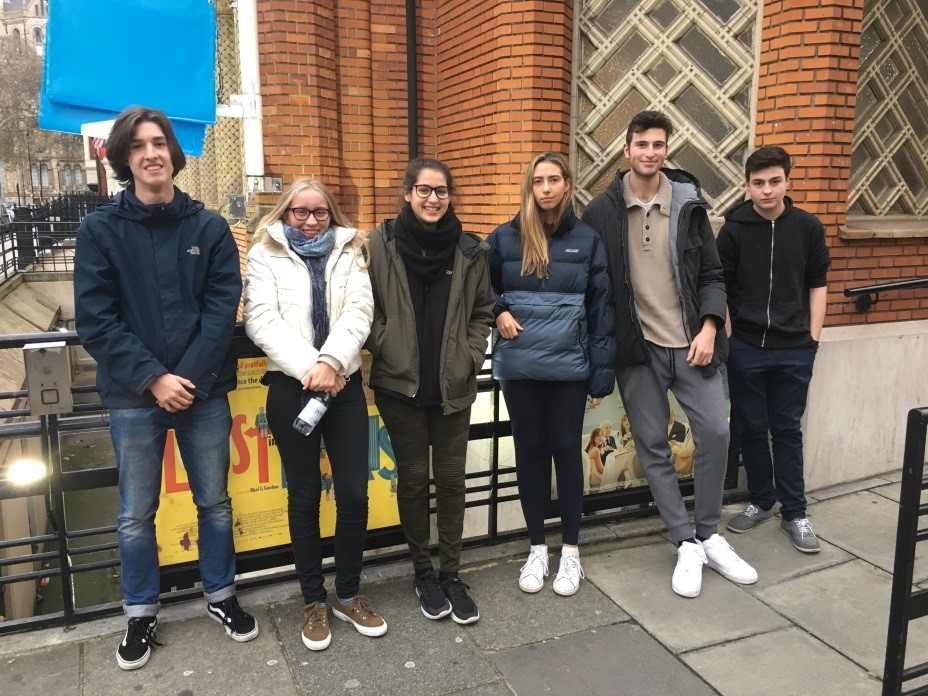On the 5th of December, the French A level students took part in a visit to the cultural Centre of L’institut Français. In the morning, we had a workshop on the theme of the First World War at the Library. The day began with a tour through their impressive library, a listed building, which contains vast sections ranging from French Art to Philosophy. After looking through the library, we then engaged in a stimulating workshop. We and the other schools there were tasked with going through the French library’s history section to answer set questions on the First World War, such as the nicknames the French had for the English and the different uniforms that different French ranks wore. Overall, this trip was an exciting and thought-provoking way to learn about key aspects of French culture.
The movie Joyeux Noel is based on a true story which happened in 1914, during World War I in the French trenches, where the Scottish and French troops tried to stop the advance of the German army. Although all sides suffered heavy losses, on Christmas Eve, the Scottish, French and German Lieuteants have a spontaneous meeting where they negotiate a truce and a cease fire for this one night only. Throughout the night there was singing and celebration of Christmas. The night finished with the Scottish priest Palmer holding a mass for the soldiers from all sides.
In my opinion, this movie is relevant to today’s generation and viewers as it portrays the idea of fraternisation between different cultures. It shows well how music and singing helps bring everyone together. The film also highlights that the divide is not between the soldiers of each side, who share the same sufferings, but between them and the politicians and military commanders, who stay in their office and never set foot in the trenches. Joyeux Noel is a truly European production made with funds from various EU countries and with French, German, British and Belgian cast. As such, it serves as a powerful reminder, in this Pre-Brexit era, of the reason why the EU was created in this first place: to avoid another war.
Written by Adam Heller and Natacha Fedrid




